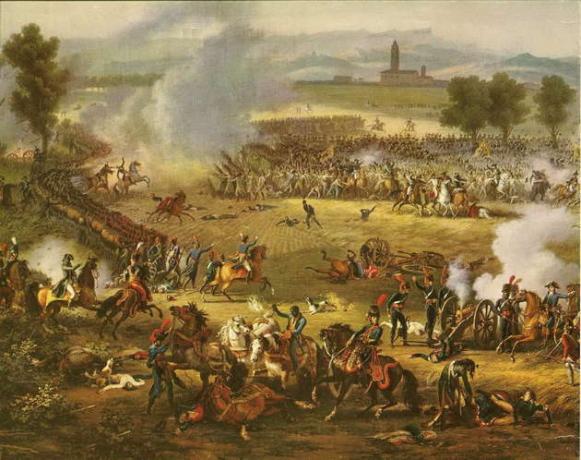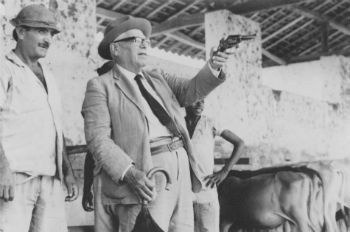O enlightened despotism it was a form of government inspired by some principles of the European Enlightenment.
The phenomenon occurred in certain monarchies in continental Europe, especially from the second half of the 18th century onwards.
Origin
The expression “enlightened despotism” was coined by the German historian Wilhelm Roscher, in 1847, therefore, it was not contemporary with such a policy.
The historian, with this term, wanted to explain a series of governments that adopted various Enlightenment principles such as rationalism, philanthropic ideals and progress.
However, these same governments made no concessions to the limitation of real power or expanded political rights to the other layers of the population.
Hence, it is also known as "benevolent despotism" or "enlightened absolutism".
In general, we can consider it as a regime that deepens the break with the typical tradition of the Ancien Regime, towards a more efficient way of governing. However, without abandoning the absolutist factors of monarchies.
In fact, the regions most affected by this policy were Russia, France, Austria, Prussia and the Iberian Peninsula.
Features

The Royal Carpet Factory, inaugurated in Madrid in 1720, meant a rationalization of fabric manufacturing. The factory still works today.
First, it is important to highlight that the European absolutist monarchies were in crisis due to the transformations caused by the Enlightenment and Liberal ideas.
In this way, the enlightened despots implemented the necessary reforms to maintain power, while restructuring their governments to be more efficient.
However, the Enlightenment ideas adopted were only those that would not harm the absolutist form of government of divine right.
Only the knowledge useful in political-administrative decision-making was used in order to dynamize the national economy. The democratizing and liberal principles of the Enlightenment were set aside.
Another interesting point is the range of knowledge that the monarch should master to implement Enlightenment principles. Hence the presence of ministers (or even philosophers) attuned to Enlightenment philosophical and economic thought in the courts of these monarchs.
Furthermore, it is curious that this phenomenon was more common where the bourgeoisie was weaker. This made the economy less developed and justified Enlightenment implementations.
Under philosophical aspects, it is very common to legitimize absolute power based on the social contract theory of Thomas Hobbes. This theory defended the divine right of kings.
On the other hand, we can find aspects of religious, expression and press freedom, as well as respect for private property.
Indeed, monarchs improved the living conditions of their subjects. At the same time, through more efficient administration, they increased state revenues, and thus strengthened royal authority.
Major Despots Enlightened

The Empress of Russia, Catherine II, increased the power of the nobility, reduced the influence of the Orthodox Church and tried to institute an educational system for non-servants
In Prussia, the King Frederick II (1740-1786) was influenced by the teachings of Voltaire (1694-1778).
In Austria, the empress Maria Tereza (1717-1780) managed to tax the nobility and create a national army.
in the king's Spain Carlos III (1716-1788), this policy took shape in the expansion of the textile industry.
In Russia, the empress Catherine II (1762-1796) promoted religious freedom while accentuating the feudalism.
In Portugal, the Marquis of Pombal (1699-1792), minister of King Dom José I (1750-1777), was responsible for the expulsion of the Jesuits, for the Portuguese educational and manufacturing reform. This had great effects on the colonial administration.
Read more:
- Enlightenment
- Liberalism
- Absolutism
- Rationalism
- Europe
- Despotism
- Enlightenment Questions


